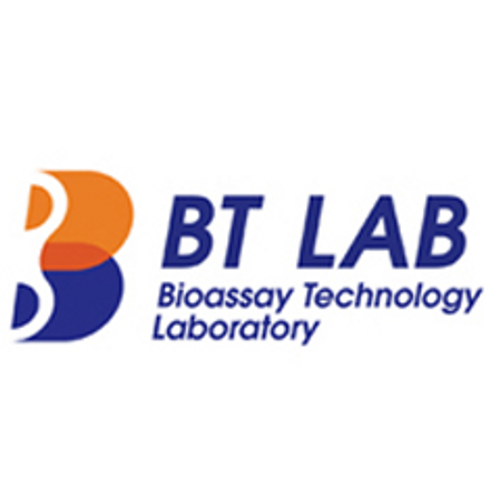Product Description
Human UDP-glucumno-syltransferase 1 (UGT1) ELISA Kit | AE12267HU | Abebio
Species Reactivity: Human (Homo sapiens)
Abbreviation: UGT1A1
Alternative Name: GNT1; HUG-BR1; UDPGT; UGT1; UGT1A; UDP glucuronosyltransferase 1A1|UDP glycosyltransferase 1 family; polypeptide A1|bilirubin UDP-glucuronosyltransferase 1-1|bilirubin UDP-glucuronosyltransferase is
Application: ELISA
Range: 1.56-100 ng/mL
Sensitivity: 0.59 ng/mL
Intra-Assay: ≤6.3%
Inter-Assay: ≤10.3%
Recovery: 0, 83
Sample Type: Serum, Plasma, Other biological fluids
Detection Method: Sandwich
Analysis Method : Quantitive
Test Principale: This assay employs a two-site sandwich ELISA to quantitate UGT1A1 in samples. An antibody specific for UGT1A1 has been pre-coated onto a microplate. Standards and samples are pipetted into the wells and anyUGT1A1 present is bound by the immobilized antibody. After removing any unbound substances, a biotin-conjugated antibody specific for UGT1A1 is added to the wells. After washing, Streptavidin conjugated Horseradish Peroxidase (HRP) is added to the wells. Following a wash to remove any unbound avidin-enzyme reagent, a substrate solution is added to the wells and color develops in proportion to the amount of UGT1A1 bound in the initial step. The color development is stopped and the intensity of the color is measured.
Product Overview: UGT-1A is a uridine diphosphate glucuronyltransferase (UDP-glucuronosyltransferase, UDPGT), an enzyme of the glucuronidation pathway that transforms small lipophilic molecules, such as steroids, bilirubin, hormones, and drugs, into water-soluble, excretable metabolites. The UGT1A1 gene is part of a complex locus that encodes several UDP-glucuronosyltransferases. The locus includes thirteen unique alternate first exons followed by four common exons. Four of the alternate first exons are considered pseudogenes. Each of the remaining nine 5' exons may be spliced to the four common exons, resulting in nine proteins with different N-termini and identical C-termini. Each first exon encodes the substrate binding site, and is regulated by its own promoter.
Stability: The stability of ELISA kit is determined by the loss rate of activity. The loss rate of this kit is less than 5% within the expiration date under appropriate storage condition. The loss rate was determined by accelerated thermal degradation test. Keep the kit at 37°C for 4 and 7 days, and compare O.D.values of the kit kept at 37°C with that of at recommended temperature. (referring from China Biological Products Standard, which was calculated by the Arrhenius equation. For ELISA kit, 4 days storage at 37°C can be considered as 6 months at 2 - 8°C, which means 7 days at 37°C equaling 12 months at 2 - 8°C) .
 Euro
Euro
 USD
USD
 British Pound
British Pound
 NULL
NULL








